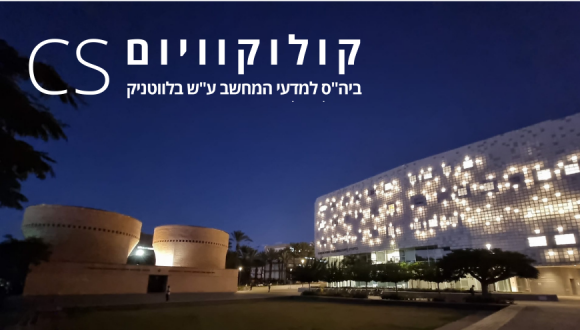קולוקוויום בית הספר למדעי המחשב
"Advances in causal inference and multiomic data analysis with applications in genetics and exercise molecular biology"
Speaker: David Amar (Stanford University)Room 420 | Checkpoint Building
|
|---|
|
Abstract The first part of the talk will focus on causal inference using genetic variants as instrumental variables, often referred to as Mendelian Randomization (MR).This graphical model assumes that all causal pathways from the genetic variants to the outcome phenotype of interest pass through the measured exposure. Under this assumption, causal inference is possible even when the variant-level summary statistics of exposure are taken from a different dataset from those of the outcome. I will first illustrate the utility of MR in different domains. I will then present a novel pipeline called cGAUGE for dealing with the strong assumptions made by MR. cGAUGE is based on novel algorithms with provable properties. It reduces the empirical false discovery rate of existing, widely used, methods by up to 30% while retaining most of the results, thereby providing the first rigorous method for dealing with the limitations of MR. The second part of the talk will focus on the molecular biology of exercise. While there is ample evidence for the beneficial effects of exercise on human health, the molecular pathways that transduce these effects are only partially known. I will first present a model-selection based meta-analysis of more than 40 publicly available gene expression randomized controlled exercise studies. This analysis identified the temporal dynamics and potential regulation events upstream of genes that consistently change in response to exercise. Next, I will present recent progress from the NIH flagship project: the Molecular Transducers of Physical Activity Consortium (MoTrPAC), in which I co-lead the data analysis. MoTrPAC runs randomized studies in both animal models and human subjects. Each study collects samples at different time points and tissues. In each sample, we measure multiple molecular signatures, including transcriptomics, epigenomics, proteomics, and metabolomics. I will briefly present the design of the studies and then dive into recent results from a long-term training study in rats. I will show how training programs initiate a profound multi-tissue response. As an example, I will discuss pathways that are associated with heart remodeling. Both parts above touch upon emerging fields in computational biology. In both cases, we are interested in quantifying true causal effects, and advanced analysis and design methods are required. In the last part of the talk I will discuss open questions and future work pertaining to these two fields.
|


